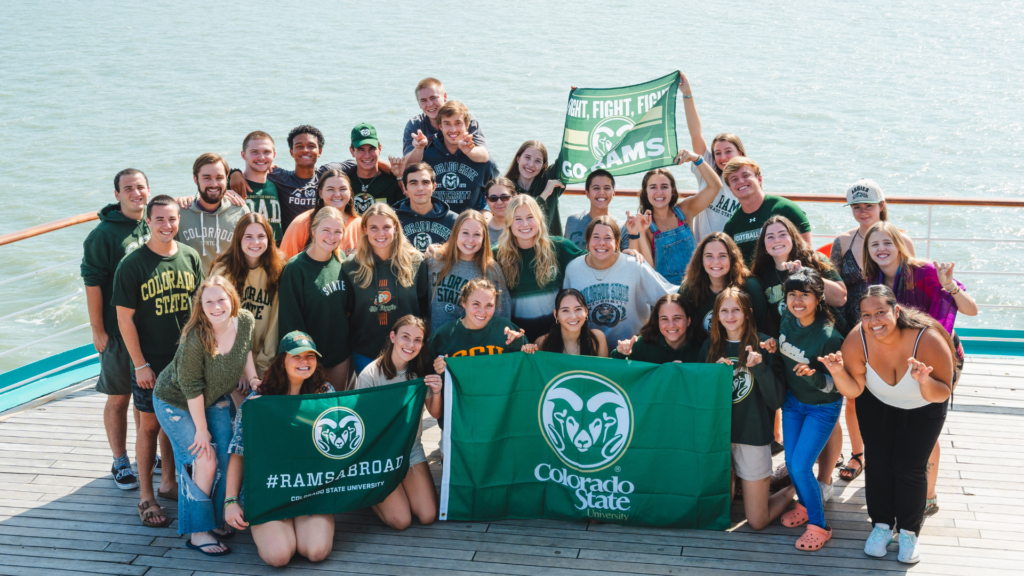Written by student: Carson Cuevas, Hofstra University

The man who empowered a nation facing oppression by marching, fasting and illegally making salt remains one of the most influential figures in all of history and his impact on India and the rest of the world persists today. While in Cochin, India, Professor Derrick Alridge of the University of Virginia, took students in his Civil Rights Movement and Education in Global Context course to meet with individuals from the Mahatma Gandhi Trust, an NGO in the southern Indian state of Kerala that works with the depressed class.
Through a conversation with staff members of the trust and a visit to a local community of the Pulaya caste, it became clear that Gandhi’s legacy lives on through the actions of scholars and activists who actively apply his theories of nonviolence and peaceful unity everyday.
In the classroom, students have been exploring the impact Gandhi had on not only the Indian population, but the rest of the world as well during the 20th century. Professor Alridge expresses why he thinks it is essential to analyze Gandhi in a global context saying, “It’s important for me because Gandhi’s ideas about nonviolence, his ideas about the oppressed and caste, really had great influence on many social activists and civil rights movement activists of the 1960s and particularly Martin Luther King.”
Gandhi is known for working with people of lower castes and envisioning a future where all Indian people would be equal. “He identified with the untouchables, he believed that they should become members of the mainstream society, and he believed that they should be treated equally with everyone else, so he really was connected to the poor,” says Professor Alridge.

“I think he was so appealing because he was so multilateral,” says Quay Meade, student at Cheyney University. “He spoke on different topics such as women’s rights and he spoke to break apart the caste system. I kind of think he worked because he struggled as well. No issue in society can be fixed unless we all struggle {and} he was able to appeal to the common Indian eye because he struggled along with the people.”
Established 27 years ago, the M. G. Trust is evidence that Gandhi’s ideas are actively employed today. Historically, the caste system has divided Indian society into four social classes: the Brahmins, Kshatriyas, Vaishyas and Shudras, with Dalits falling under Shudras. The Dalits were often discriminated against within society and referred to as “untouchables.” Now, organizations like the M.G. Trust refer to this group of people as a scheduled caste or depressed. Having been considered as less than human in the past, the trust works to empower this caste group through education and seeks to inform individuals of their rights awarded them at birth.
Shri P. V. Krishnankutty, Chairman and Dr. M. K. Mukundan, General Secretary of the M.G. Trust explained to students that Gandhi was pivotal in leading the fight for Dalits’ rights in all facets. Gandhi advocated for political, economic and social equality and the trust seeks to inform people of all of their rights, to achieve Gandhi’s vision. Still though, legal action is not always enough to change a society and the trust members alluded to the fact that many administrative decisions today lay in the hands of the elite classes, making it hard for equal status on all levels to exist.

Leaving the meeting with the M.G. Trust, the students traveled to a nearby village to interact with the people Gandhi would have advocated for. A community of 110 residents living in rural Cochin, welcomed Alridge’s class with warmth, smiles and coconuts.
Nestled in between homes in the heart of the village, students and locals got a chance to learn about each other. Villagers spoke in Malayalam, the local language, and staff from the M.G. Trust translated.
It is widely believed that education opens doors and is the key to greater opportunity for someone. When asked about access to education, they explained that nearly every child has the chance to attend either public or private school nearby and multiple women present held college degrees. Still though, seeing the lack of job opportunities available to women that earn college degrees is disconcerting and caste remains a barrier to advancement within society, even for those that do receive an education. “I think they’re limited by their caste,” expresses Amy Lau of Hong Kong University. “If you get an education, but you don’t get jobs, that’s not useful.” Lack of adequate support for housing from the government was a difficulty mentioned, as well as the high risk of sea erosion and monsoons disrupting everyday life. Through this visit, it became clear to students that the caste system has evolved, but not to the level that sees every person in India enjoying equal rights with one another.

Despite these challenges however, the community spoke of the peace that runs through the community and friendly relations between neighboring villages regardless of differing beliefs. With only basic living conditions, the joy in the community was evident and moments of song between the students and the community united everyone. An unexpected finish to the day: students singing Amazing Grace as a class to the people in the village.
Gandhi envisioned an India that was unified, despite contrasting beliefs or ideals. A glimpse at the life of those in a scheduled caste showed students that while caste might not exist on paper anymore, it is still a part of society. Professor Alridge reflects saying, “I think the caste system, although there has been some improvement from it, in terms of helping people since Gandhi’s day, some of the problems still persist.” In this moment, with smiles all around and music in the air, Gandhi’s vision for peace was evident and the moment served as a chance to reflect on the work that still needs to be accomplished in the fight for equality.


